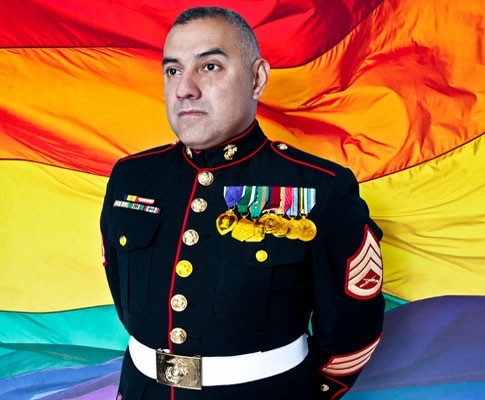Fight For Your Right
October 24, 2015 | greystar
On Tuesday, October 27th, two nationally leading human rights figures—Eric Alva and Jim Obergefell—will participate in a public discussion about gay rights at Discovery Green. Both Alva (who testified in Congress to repeal the “Don’t Ask, Don’t Tell” policy) and Obergefell (who was the lead plaintiff in the landmark Supreme Court case that led to legalized same-sex marriage nationwide) are trailblazers in the LGBT rights movement. Their appearance in Houston, exactly one week before the November 3rd voting day for the HERO ordinance, is both timely and significant.
“All Americans deserve to have the right to life, liberty and the pursuit of happiness,” Obergefell states. “We [as LGBT individuals] are being denied our abilities to live a life of happiness. We have marriage equality. But, if that right is exercised, you could lose your job, lose your home…We’re being denied the freedoms that other Americans have. It isn’t right. It isn’t just.”
Obergefell didn’t set out to be a prominent gay rights activist. His fight for same-sex marriage equality came out of a small, but significant request—to be named the surviving spouse on his husband’s death certificate. In 2013, Obergefell married his longtime partner, John Arthur, who was suffering from ALS. The Ohio couple flew to Maryland to make their union official. Soon after they returned, they were given unsettling news: Despite their marriage, Ohio would not list Obergefell as Arthur’s surviving spouse on his death certificate.
Immediately, Obergefell filed suit—and won—against the state of Ohio. A judge ruled that his marriage be recognized by the state, and his name was placed on his husband’s death certificate. Three months later, Arthur died. Ohio then filed an appeal to remove Obergefell’s name from the certificate.
His case appeared before the U.S. 6th Circuit Court of Appeals—along with other same-sex marriage cases from Michigan, Kentucky, and Tennessee. “After John died, and around the time we went to appeals court, that really started to hit me—I’m fighting for John, America and what’s right. And I’m fighting for a lot more people,” Obergefell explains. In a disheartening loss, the court ruled against recognition of same-sex marriage. But Obergefell wasn’t ready to give up. “The way to do that was to continue to fight—and the way I did that was by saying that this isn’t right.”

Eric Alva
IMAGE: FARRIS PHOTO
Obergefell appealed to the Supreme Court and became the title case in Obergefell v. Hodges. On June 26, 2015, the Court ruled in favor of Obergefell and legalized same-sex marriage throughout the United States. “I ended up in the public spot, not by plan, but simply by standing up for what was right and living up to my commitment to my husband,” Obergefell says.
Like Obergefell, Eric Alva never thought he would be advocating for human rights. The Marine, who spent 13 years in uniform, earned the Purple Heart after a landmine explosion and was sent home in 2004. Although those years were distinguished by honor, sacrifice and patriotism, they were also weighted by frustration and restriction under the “Don’t Ask, Don’t Tell” policy.
“The policy forced individuals to lie about who they were just to keep their jobs. I always had to make up stories, and was constantly worried about whether people would follow up on them or catch me in a lie,” Alva explains. “You couldn’t tell anyone if you were gay because you would be kicked out. You’d be going against the law—and could even be imprisoned.”
The constraints continued in his civilian life. Alva decided to move back to his native San Antonio with his first partner in 2005—the same year Texan voters elected to modify the state constitution and ban same-sex marriage. “It felt like a kick to the gut…I didn’t come home to the same privileges, rights, and freedoms as everyone else. Just because I’m gay, I didn’t have the same access to equality as others—even though I lost a part of my leg fighting for my country,” he states.
In 2006, he decided to contact the Human Rights Campaign to share his story and join the fight for LGBT rights—which led to him coming out nationally on Good Morning America in early 2007. Afterwards, from 2007 to 2010, Alva worked directly with Republican and Democrat members of Congress to repeal the “Don’t Ask Don’t Tell” policy. “We’re going to have opposition—that’s always going to be there—but we can share our stories to change the hearts and minds of people, because love always wins,” he says.
Dynamic Conversations with Changemakers. Oct. 27. 7. Free. Discovery Green, 1500 McKinney St. discoverygreen.com
